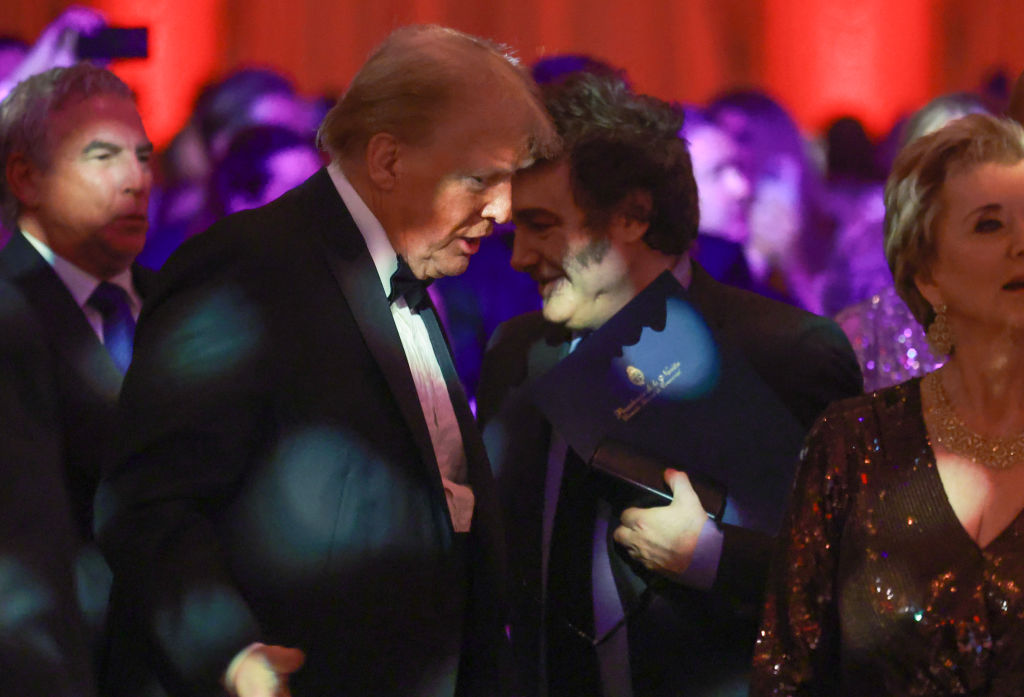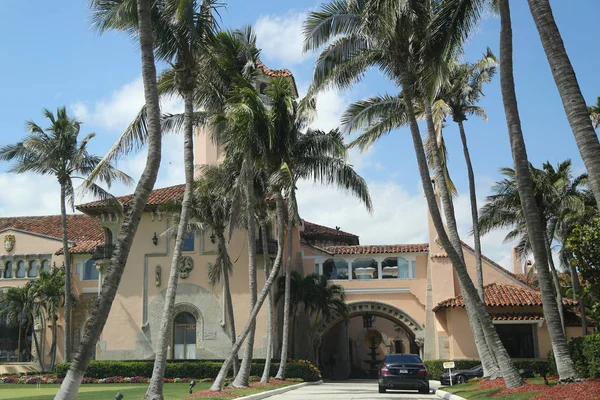Trump Runs the Milei Playbook
Through DOGE, the president is exerting his control over the executive branch.

The start of Donald Trump’s second terms has seen the president and his subordinates unleash a flood of executive action on the federal government. During his first week in office, Trump signed dozens of executive orders on issues ranging from the definition of citizenship to the architectural style of public buildings. This frenzy of activity has as its objective to achieve important policy objectives, but a few things stand out.
The first is the so-called Department of Government Efficiency, DOGE. Established by Elon Musk and staffed with his Silicon Valley wunderkinder, DOGE has been in the news for its controversial efforts to gain access to government payment processing platforms in targeted departments. Using the information thereby acquired, Musk has been ruthless in designating programs of questionable value or based on (opposing) political values for elimination, including over a billion dollars in DEI initiatives and grants.
Trump, with the help of Musk’s team, has also ruthlessly seized hold of portions of the executive branch that are most hostile to his governing philosophy and begun dramatic reorganizations and cuts. The most notable is, of course, the United States Agency for International Development, an agency over which the president has extensive powers, given that its structure is not defined in statutory law. While the USAID budget makes up a relatively small portion of federal spending, conservatives and libertarians have long complained that the agency functions as a slush fund for liberal and left-wing causes abroad, handing out billions of dollars every year to NGOs to promote atheism in Nepal, DEI trainings in Ireland, and LGBTQ employment in Serbia.
That agency is in the process of being gutted, as the president has ordered the firing of all but some 300 of its 10,000 employees (although that action has been temporarily blocked by a judge). Secretary of State Marco Rubio has been appointed acting director of USAID, and the president probably intends to fold the agency back into the State Department, although such an act likely requires legislative approval.
With the evisceration of USAID well under way, the administration has turned its attention to the Department of Education. DOGE has, according to the Washington Post, ripped through the department, cancelling hundreds of millions of dollars in contracts, cutting staff, and preparing to comb through the vast catalogue of grants the DoE makes to public schools, universities, and NGOs. Chris Rufo even jumped in to assist with the project, compiling dossiers proving that “the whole department functions like a Ponzi scheme for left-wing ideologies” and preparing lists of grants and programs ready and worthy for the Trumpian axe.
The administration has also targeted politically hostile institutions in subtler ways. The most notable is probably the sharp adjustment to the permitted overhead that can be extracted from government research grants made by the NIH, which will deal a harsh blow to universities, which often use significant amounts of federal grant money to subsidize their administration and operating costs. The retooling of grant evaluation, ending the free flow of money for projects focusing on diversity, gender, LGBTQ issues, and other left-wing causes, will cause significant pain in an already struggling industry dominated by political activists and hardliners.
This sharp focus on eliminating “waste”—in reality, a vast scheme by which billions of taxpayer dollars are funneled into left-wing patronage schemes used to propagandize both Americans and foreigners—is taking a leaf directly from the political playbook of Argentine president Javier Milei. Milei has been enormously successful at debilitating his political enemies on the left by strangling their subsistence at the source, which is inevitably the government. Much of his program has focused on eliminating these implicit subsidies: privatizing wasteful public enterprises, cutting national funding for universities (which are hotbeds for left-wing activism in Argentina as much as in the U.S.), instituting strict controls on government contractors, firing employees.
Milei has also remade government agencies in his own image. One of his first actions on entering government was to eliminate nine ministries of the Argentine executive branch wholesale. He abolished the Argentine equivalent of the IRS, an agency controlled largely by his political opponents, and replaced it with a new institution with essentially identical responsibilities, but staffed by employees loyal to his program. He even abolished and reconstituted the Argentine intelligence services and embarked on a purge of agents and employees there, dispensing with more than half of them. Even in ministries he has left intact, loyalty to the president’s program is a requirement: when his ambassador to the UN disobeyed his instructions and voted “yes” on a resolution to lift the American embargo on Cuba, he immediately sacked her and replaced her with a more reliable diplomat.
Milei, too, has a strongman in government that serves as his right hand against the bureaucracy. Though neither a tech giant nor the richest man in the world, Santiago Caputo—Milei’s political advisor—rules from the Casa Rosada with an iron hand, supervising the various ministries and ensuring that they remain aligned with the president’s vision, allowing Milei to deal with the higher-level demands of the office. With the release of Trump’s latest executive order regarding the Department of Government efficiency, it seems like the president intends to use DOGE for a similar purpose, with DOGE team leads in every department and agency vetting all hiring decisions. This kind of parallel structure of accountability is unusual for the United States, but quite familiar in other parts of the world: The political commissar is an ancient adaptation to rigid or uncooperative bureaucracies.
How much of the Trump transition team’s planning was inspired by Milei is impossible to know, and the vast differences between the Argentine and American political systems means that the similarities can only reach so far. But the basic similarity between the principles of operation is promising for all those who are friends of responsible, accountable government and enemies of the administrative state.
The post Trump Runs the Milei Playbook appeared first on The American Conservative.

